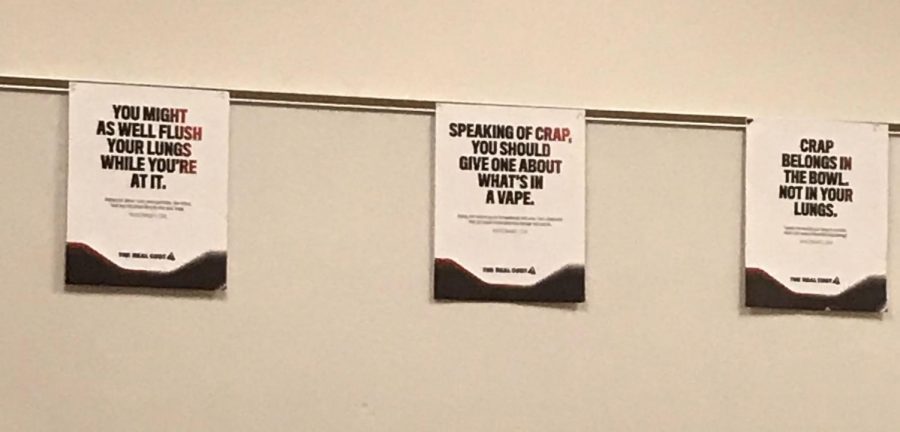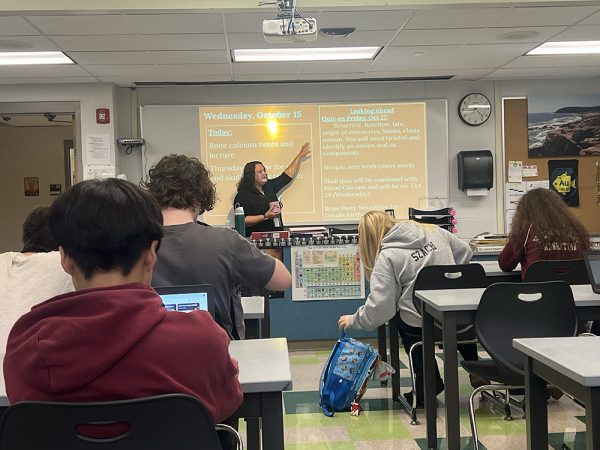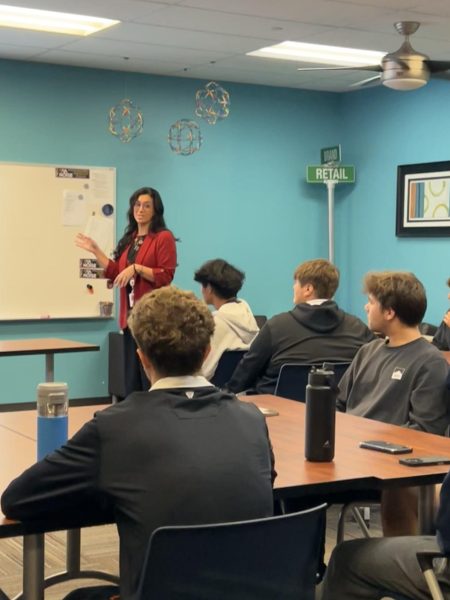Administration Cracks Down on Vaping
New Rules Comply With State Law Passed Over Summer
Superintendent Dr. Robert Hardis emailed Beachwood parents on Aug. 6 to inform them of a change in policy with regards to vaping.
“In addition to educating our students about the dangers of vaping as well as the use of any sort of tobacco product, Beachwood City Schools has added to our school discipline an additional consequence should a student be found in possession of a vaping instrument, tobacco or illegal drug product or paraphernalia at school or at a school-sponsored event,” Hardis wrote in the email.
Previously, students caught vaping on premises would be required to attend six hours of drug and alcohol counseling at a quarterly drug counseling weekend session, along with the possibility of further discipline.
Under the new policy, offenders will receive a traffic citation from the district’s Director of Security, Officer C. J. Piro.
For Juulers under 18, this would constitute a juvenile court date (at which a parents’ attendance is mandatory), a minimum fine of $100 and an estimated (though variable) 100 hours of community service.
Assistant Principal Ryan Patti added that it is common practice in the juvenile court to assign research papers; offenders can anticipate an assignment on the dangers of electronic cigarettes. Per his assessment of the situation, this would not apply to legal adults, and it is hard to predict how a Cuyahoga County judge would sentence such an offender.
Students’ response to this development varies significantly. Many students instinctually view the new measures as somewhat punitive, but the vast majority seems in favor.
“It’s a bit intense,” Junior Ethan Holz said, “but I think it is setting a good example. There need to be consequences.”
“I think it’s fair,” said one anonymous Juuler. “School’s just not the place to do it.”
Another Juuler confessed that they have been waiting for this opportunity.
“I was actually thinking about quitting so that would be good,” he said.
Many students, including non-Juulers, feel that others should have a right to destroy their own health if they so choose. But the American Lung Association, which Dr. Hardis cited in his email, alleges that widespread use of Juuls among teens is no accident, and not fully the fault of the Juuler.
“The tobacco industry spends billions of dollars each year to make sure their products are as appealing and as addictive as possible,” the website claims. “The tobacco industry also aggressively markets e-cigarettes to youth, glamorizing e-cigarette use in advertisements and offering e-cigarettes in candy flavors like bubble gum and gummy bears.”
Juul Labs rejects that assertion.
“Underage vaping is a serious problem,” Juul CEO Kevin Burns stated in a press release. “Juul Labs is committed to preventing underage use and has taken the most aggressive actions of anyone in the industry to proactively curb underage use.”
The change in policy is the direct result of recent efforts to curb underage tobacco use.
Senate Majority Leader Mitch McConnel, who has received generous campaign contributions from the tobacco industry for the bulk of his career (One RJ Reynolds lobbyist went as far as to describe him as “a special friend to RJR”), has been pushing a “Tobacco Free-Youth Act”, often abbreviated “T21”.
The bill seeks to avoid systemic changes or new regulations on the tobacco industry, changing only the minimum age for purchasers to 21, and redefining the term “tobacco product” to comply with the FDA’s current, more inclusive definition of such.
Conservative state senates across the nation have followed McConnell’s lead. The 133rd Ohio General Assembly, in accordance with Gov. Mike DeWine’s desires, raised the age for the purchase of an “alternative nicotine product” to 21. The new policies in BHS, and across Ohio, are applying these new rules.

Alice Soprunova (she/her) began writing for the Beachcomber in 2019. She covers stories pertaining to issues of social justice inside and outside BHS....






![“My parents have always said that education is important. My parents are Chinese immigrants, I'm Chinese American, [and that's a] value that has always been ingrained in our community,” said Senior Lyndia Zheng, pictured with Tony Zheng](https://bcomber.org/wp-content/uploads/2025/10/DSC_4244-600x400.jpg)




